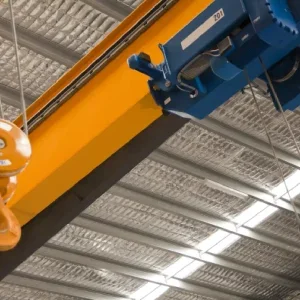The decision is conditional on the divestment of Konecranes' Stahl subsidiary, which supplies industrial cranes, crane components and spare parts.
Terex's MHPS supplies industrial cranes, crane components, crane services and container handling equipment.
The Commission's preliminary investigation found that the transaction, as initially notified, would create significant overlaps between Konecranes' and Terex's activities in the supply of electric chain hoists and wire rope hoists, which are components used to build cranes, as well as standard cranes and container handling equipment.
The investigation showed that the transaction would have risked significantly reducing effective competition in the markets for electric chain hoists and wire rope hoists in the European Economic Area (EEA), and in particular in Germany and France.
The Commission’s concerns were based on the very large combined market shares of the merged entity, the intense competition between Konecranes and Terex's MHPS products before the proposed transaction and the sole presence of Abus as the only other major alternative supplier active across the EEA.
“Customers raised concerns about the risk of price increases for both electric chain hoists and wire rope hoists in the EEA, and in particular in Germany and France,” the EC said.
In order to address the Commission's competition concerns, Konecranes offered to divest its entire Stahl global business for hoists, cranes and other handling materials, including the associated production facility based in Germany.
This divestment removes the whole overlap in Germany and more than half of the overlap in France for both electric chain hoists and wire rope hoists. At EEA level, the divestment removes completely the overlap for wire rope hoists and halves the overlap for electric chain hoists.
Konecranes and Terex are not allowed to close their deal until the Commission has approved the buyer(s) of the assets put up for sale.






